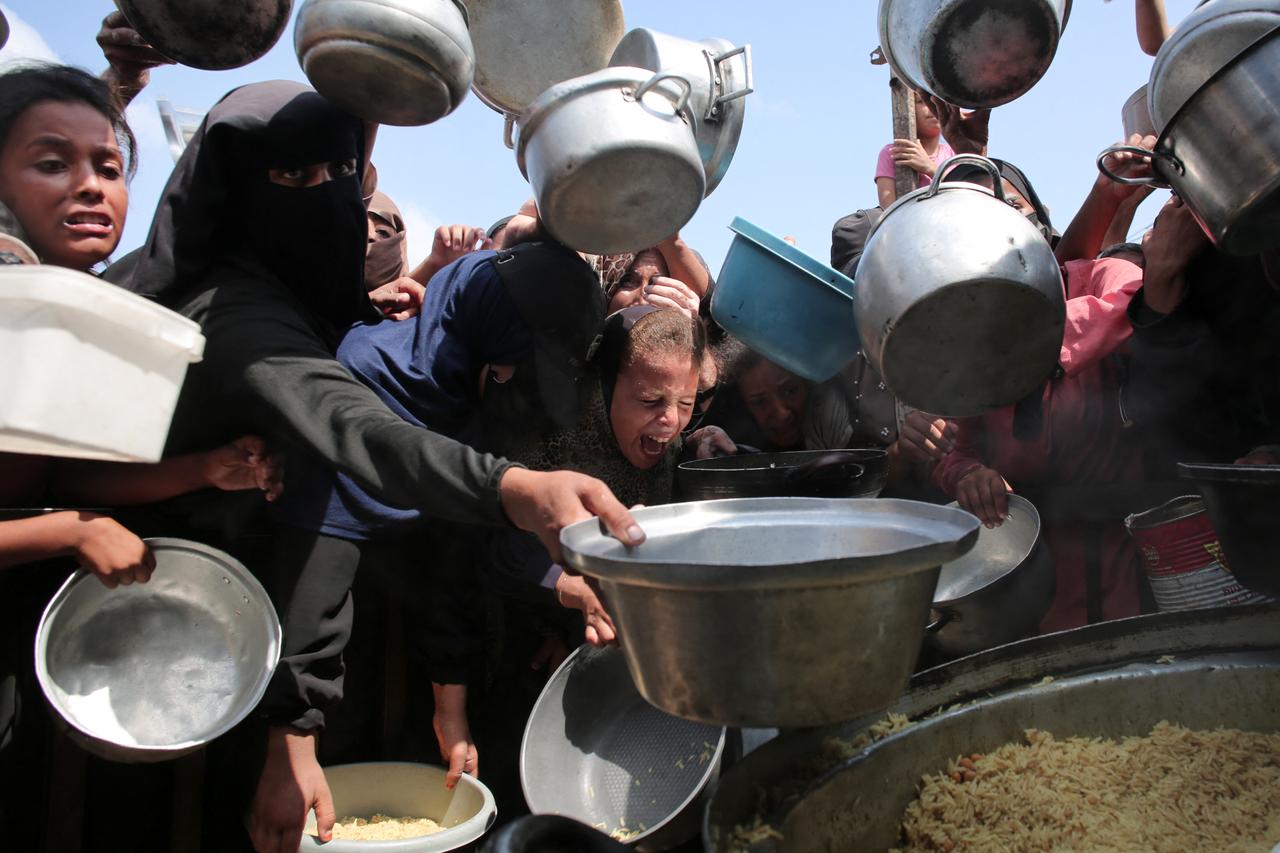
The United Nations officially declared a famine in Gaza City on Friday, marking the first famine in the Middle East, with the Integrated Food Security Phase Classification (IPC) confirming that over half a million Palestinians face catastrophic conditions characterized by starvation, destitution and death.
The IPC, the world's leading authority on food crises, stated in its report: "As of 15 August 2025, Famine (IPC Phase 5)—with reasonable evidence—is confirmed in Gaza Governorate. After 22 months of relentless conflict, over half a million people in the Gaza Strip are facing catastrophic conditions characterized by starvation, destitution and death."
The report added that "Another 1.07 million people (54%) are in Emergency (IPC Phase 4), and 396,000 people (20%) are in Crisis (IPC Phase 3)."
"Between mid-August and the end of September 2025, conditions are expected to further worsen with Famine projected to expand to Deir al-Balah and Khan Younis," the IPC stated.
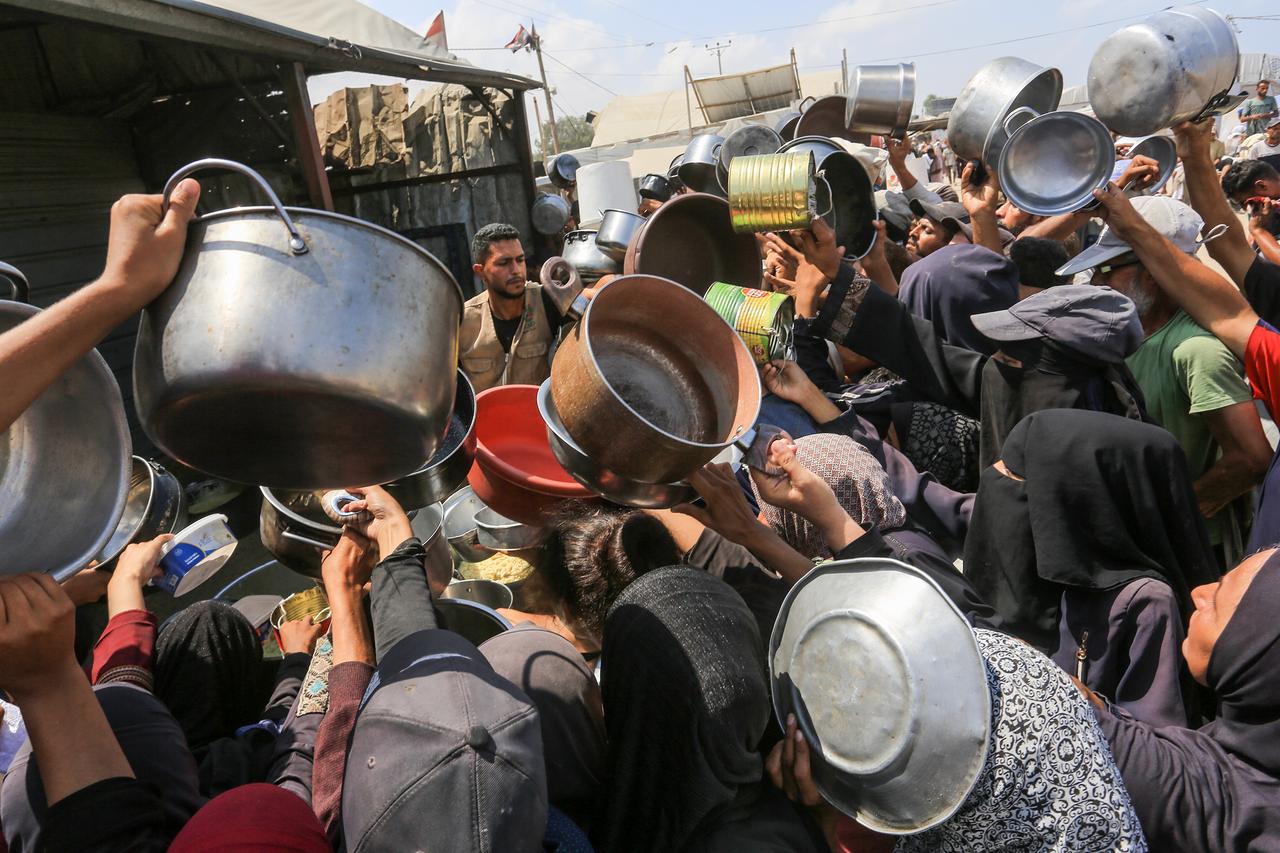
Israel immediately rejected the findings, with the foreign ministry stating "there is no famine in Gaza" and calling the report "based on Hamas lies laundered through organizations with vested interests."
"In recent weeks, a massive influx of aid has flooded the Strip with staple foods and caused a sharp decline in food prices," the Israeli foreign ministry said. "This assessment, too, will be thrown into the despicable trash bin of political documents."
The Coordination of Government Activities in the Territories (COGAT) said the IPC had based its survey on "partial data originating from the Hamas Terrorist Organization."
"COGAT firmly rejects the claim of famine in the Gaza Strip, and particularly in Gaza City. Previous reports and assessments by the IPC have repeatedly been proven inaccurate and do not reflect the reality on the ground," COGAT stated.
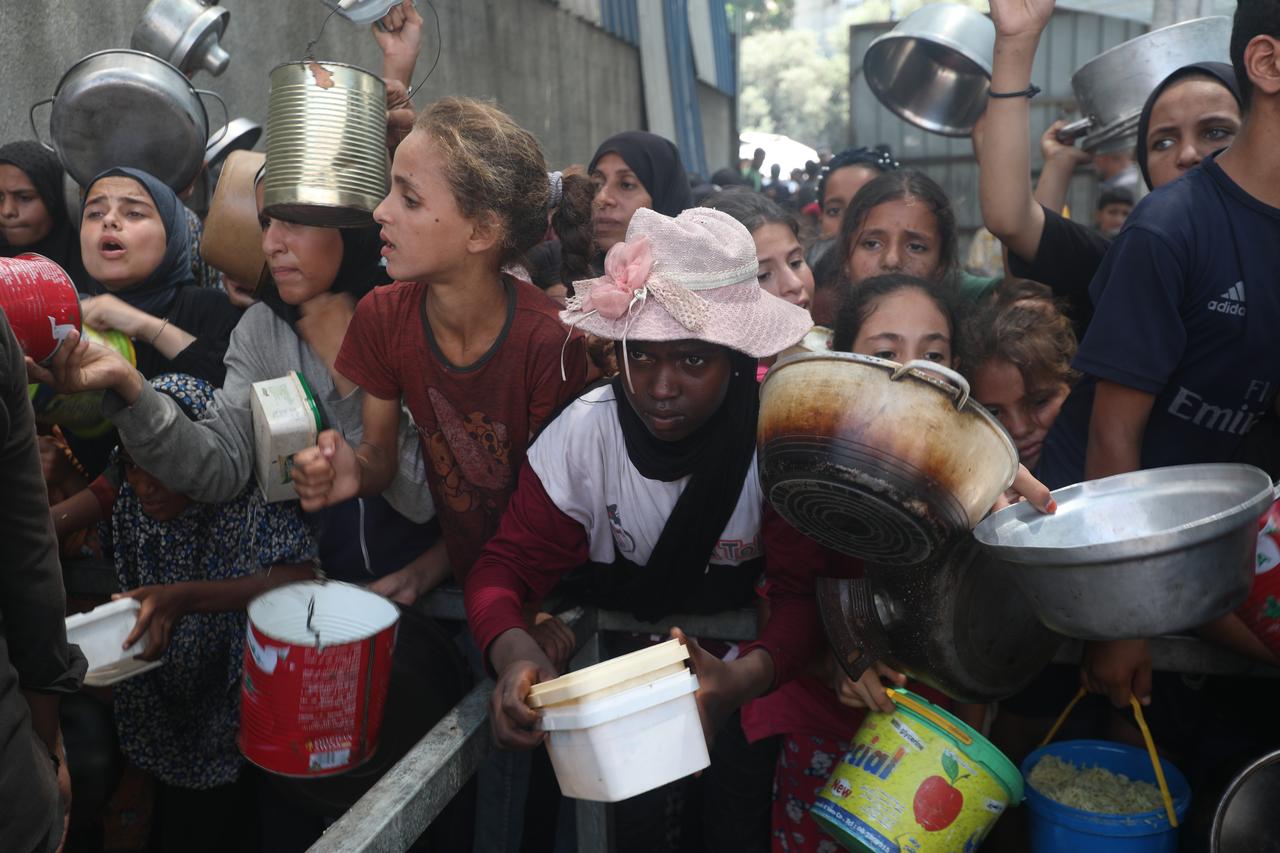
U.N. aid chief Tom Fletcher called the famine entirely preventable during a Geneva press conference, saying people should read the IPC report "in sorrow and in anger."
"It is a famine. The Gaza famine," Fletcher said. "It is a famine we could have prevented. It is a famine that hits the most vulnerable first—each with a name and each with a story."
"It is a famine we could have prevented if we had been allowed. Yet food stacks up at borders because of systematic obstruction by Israel," Fletcher told reporters.
Fletcher said the famine "forces people to risk their lives to seek food" and "is a famine we repeatedly warned of."
He added that the famine is "openly promoted by some Israeli leaders as a weapon of war."
"Everyone owns this. The Gaza famine is the world's famine," Fletcher said. "It is a famine that will and must haunt us all. It is a predictable and preventable famine."
Fletcher noted that Gazans "do not need to read the latest IPC report because they know this—they have known this for weeks."
When asked if he believed Gazans were being subjected to the "collective punishment of starvation" by Israel, Fletcher responded that Gazans were suffering from "a famine that could have been prevented but there has been that systematic obstruction preventing us from getting those trucks moving at the scale that they need to, preventing us from breaking that blockade that has existed for so much of the recent months."
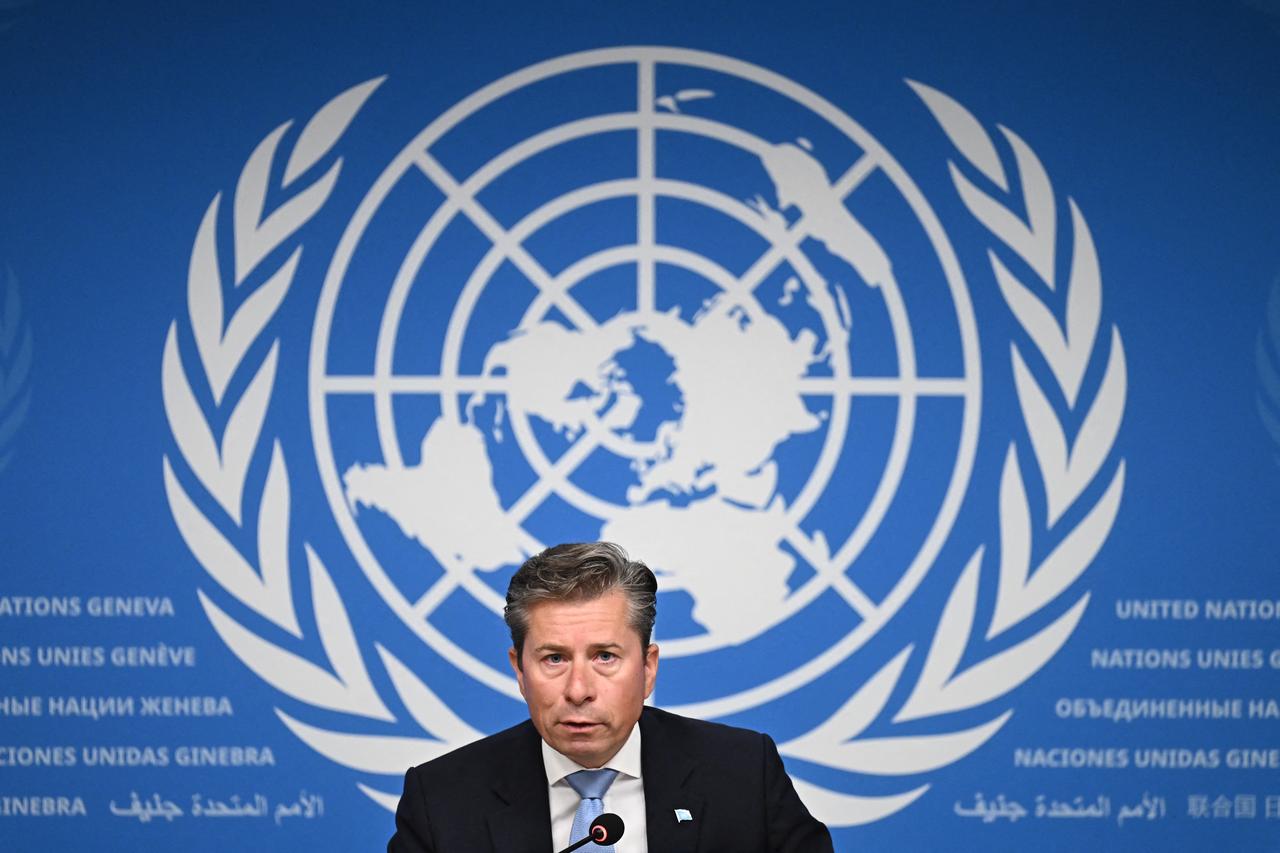
U.N. Secretary-General Antonio Guterres said: "Just when it seems there are no words left to describe the living hell in Gaza, a new one has been added: 'famine.'"
"It's not a mystery," Guterres added, "but rather a man-made disaster, a moral indictment, and a failure of humanity itself."
"Famine is not only about food; it is the deliberate collapse of the systems needed for human survival," Guterres said.
The U.N. chief stated that Israel has "unequivocal obligations under international law—including the duty of ensuring food and medical supplies of the population."
"We cannot allow this situation to continue with impunity. No more excuses. The time for action is not tomorrow—it is now. We need an immediate ceasefire, the immediate release of all hostages, and full, unfettered humanitarian access," Guterres said.
U.N. human rights chief Volker Turk stated: "The famine declared today in Gaza Governorate by the Integrated Food Security Phase Classification (IPC) is the direct result of actions taken by the Israeli government."
"It is a war crime to use starvation as a method of warfare, and the resulting deaths may also amount to the war crime of willful killing," Turk warned.
The IPC report projected that "Nearly a third of the population (641,000 people) are expected to face catastrophic conditions (IPC Phase 5), while those in Emergency (IPC Phase 4) will likely rise to 1.14 million (58%)."
"Acute malnutrition is projected to continue worsening rapidly. Through June 2026, at least 132,000 children under five are expected to suffer from acute malnutrition—double the IPC estimates from May 2025. This includes over 41,000 severe cases of children at heightened risk of death," report noted.
"Nearly 55,500 malnourished pregnant and breastfeeding women will require urgent nutrition response," the report stated.
The IPC noted: "Conditions in North Gaza Governorate are estimated to be as severe—or worse—than in Gaza Governorate. However, limited data prevent IPC classification of this area, highlighting the urgent need for access and comprehensive assessments. Rafah Governorate was not analyzed, given indications that it is largely depopulated."
According to the IPC report: "Since the end of the ceasefire in March, Gaza's population has faced escalating violence, peaking in July, with 3,700 people killed and 14,000 injured. Around 800,000 people have been displaced since mid-March, including almost 350,000 following the escalation of hostilities in May."
"This wave of displacement has forced people to abandon any remaining resources, further disrupted access to essential health services and compounded humanitarian needs," the report added.
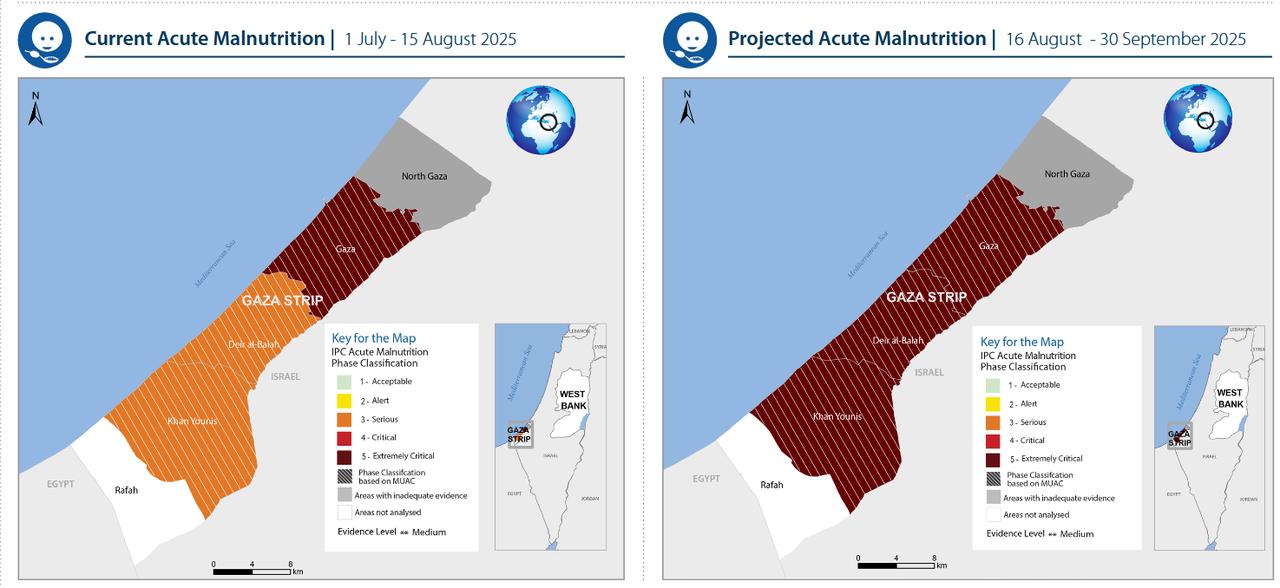
"The complete halt of humanitarian and commercial food deliveries in March and April, followed by critically low volumes through July, coupled with the collapse of local food production, has led to extreme food shortages. While 55,600 metric tonnes of food entered Gaza in the first half of August, this remains largely insufficient to offset the prolonged deficits," the IPC stated.
"In addition, security and operational challenges have prevented much of the incoming food from reaching the population. Aid deliveries have been severely disrupted—with 87% of UN trucks reportedly intercepted—reflecting the extreme desperation of the population," the report noted.
"Gaza Humanitarian Foundation (GHF) food distributions have been marked by insecurity and stark disparities in coverage and access. In July, 80% of households reported facing safety risks while seeking food," according to the IPC.
"At the same time, community kitchens have had to scale down operations, and food prices have skyrocketed amid growing scarcity. Consequently, food security has deteriorated at an unprecedented pace. For instance, the proportion of households experiencing extreme hunger doubled between May and July, surpassing the famine threshold in Gaza, Deir al-Balah and Khan Younis governorates," the report stated.
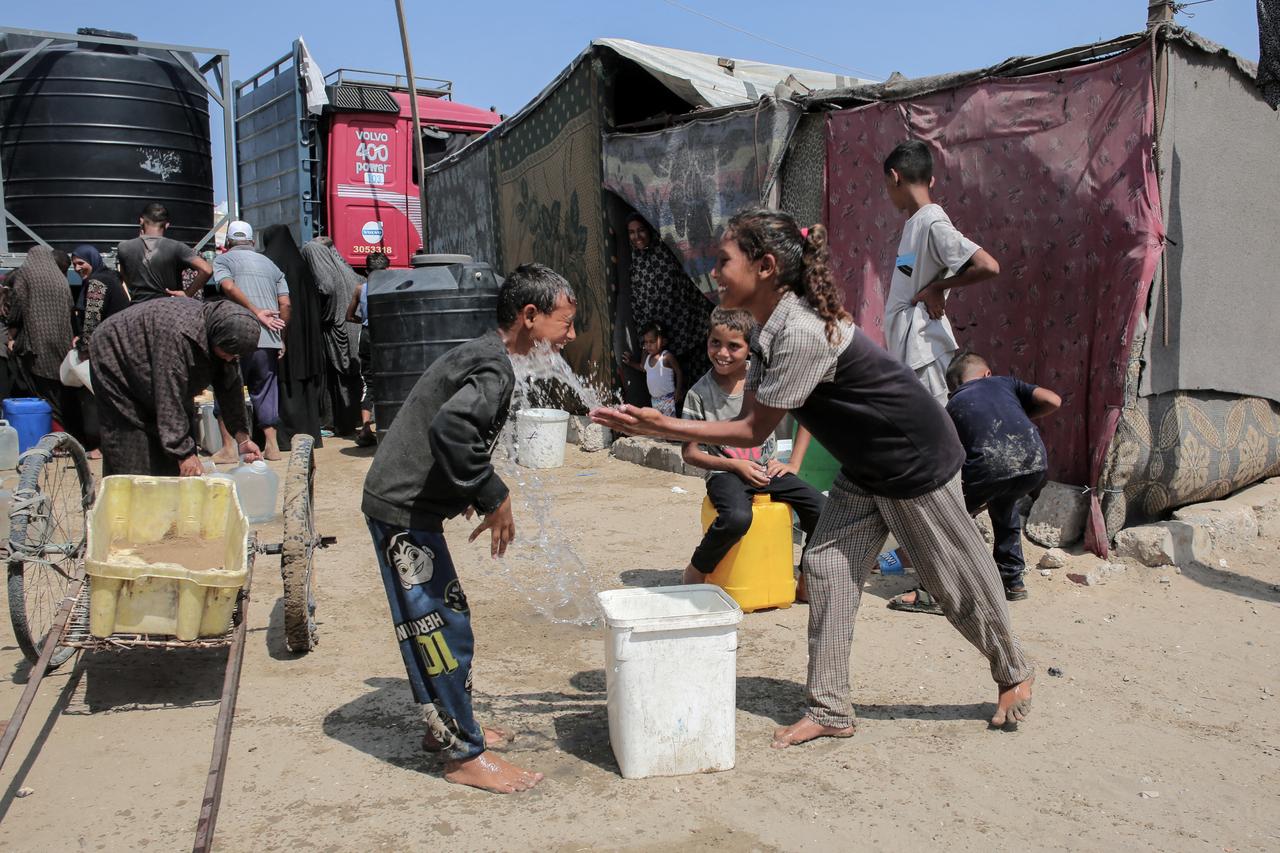
The IPC has declared just four other famines since it was established in 2004, all in Africa: Somalia in 2011, and Sudan in 2017, 2020 and 2024. This marks the first famine declaration outside of Africa.
For a region to be classified as in famine, at least 20% of people must be suffering extreme food shortages, with one in three children acutely malnourished and two people out of every 10,000 dying daily from starvation or malnutrition and disease.
Türkiye, Britain, Canada, Australia and many states said the humanitarian crisis had reached "unimaginable levels" after nearly two years of war between Israel and Palestine.
U.S. President Donald Trump last month said many people in Gaza were starving, putting him at odds with Israeli Prime Minister Benjamin Netanyahu, who has repeatedly said there was no starvation.
Israeli attacks have killed at least 62,192 Palestinian people, most of them being children and civilians, according to Gaza health ministry figures that the United Nations considers reliable.